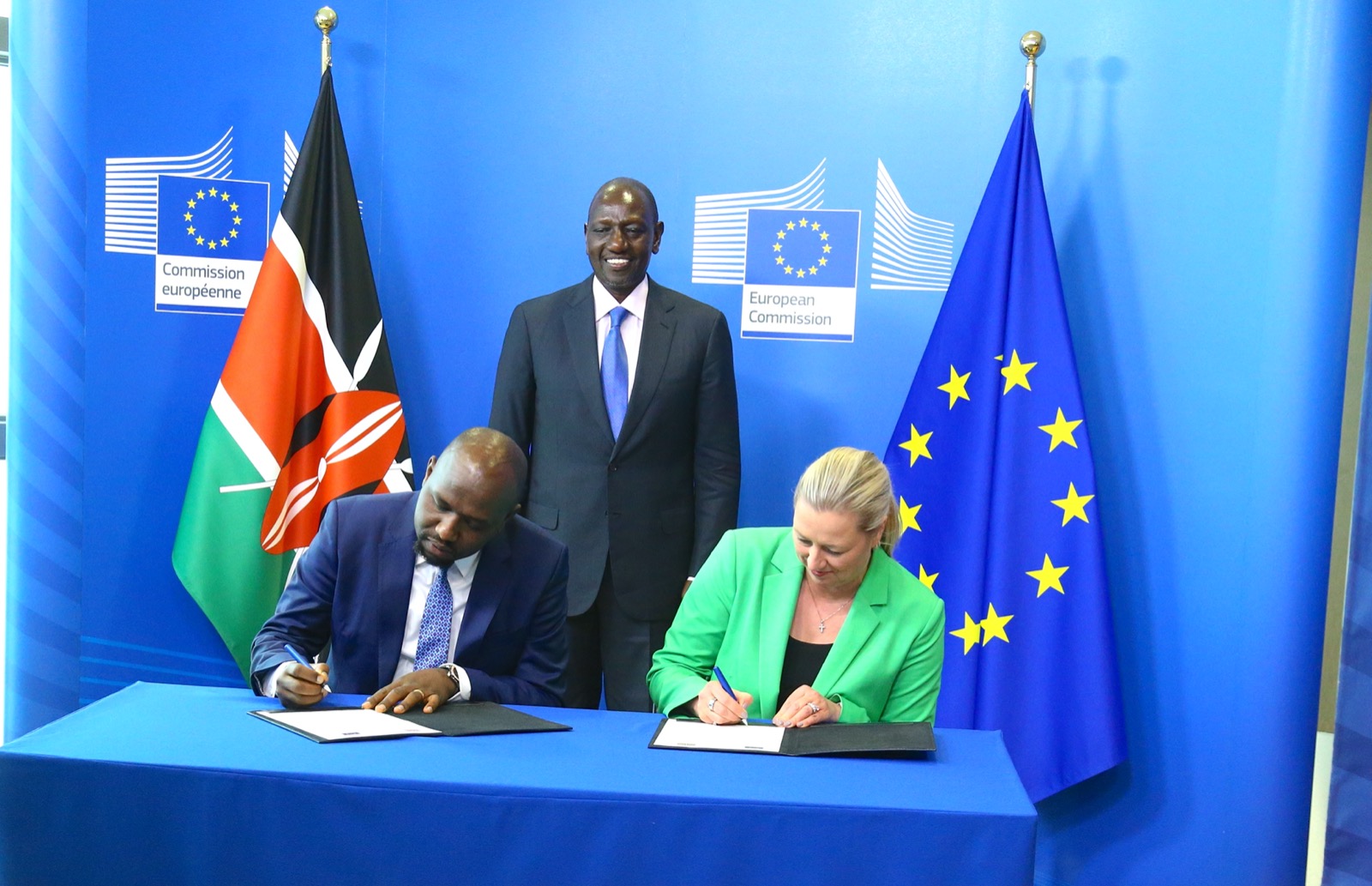Kenya and the European Commission have agreed to a $378.6 million financing deal for the construction of East Africa’s first dedicated electric Bus Rapid Transit (BRT) lane.
The deal was after European Union Commission President Ursula von der Leyen and Kenyan President William Ruto held talks in Brussels, Belgium.
At the same time, President Ruto emphasized Kenya’s dedication to a green transition in accordance with the country’s climate change mitigation plan.
The Nairobi Metropolitan Area Transport Authority (NAMATA) proposed the BRT in a 2019 report as a strategy for alleviating traffic in Nairobi.
Currently, over three million commuters in the bustling city spend an average of 57 minutes daily on short trips, costing the Kenyan economy nearly $1 billion annually in lost productivity.
The Green Mobility-Nairobi Core Bus Rapid Transit Line 3 (BRT 3) will employ zero-emission electric buses.
In addition, the Electric BRT Lane will incorporate intelligent transport system features, affordable fare setting, and increased access to public transport for youth, women, and low-income households. The system also aims to improve traveler safety.
Electric BRT Lane, Kenya’s gamechanger
Kenya’s Roads and Transport Cabinet Secretary Kipchumba Murkomen and European Commissioner for International Partnerships Jutta Urpilainen signed the agreement.
Also, the two discussed other areas of mutual interest, including trade and investment, climate change adaptation, health, and technology.
Features of the new BRT system include a dedicated lane, colored pavement, flyovers, right-of-way lanes, level stations and pre-paid fare collection.
Others are information systems, footbridges, sidewalks, pedestrian crossings, facilities for persons with disabilities, and parking lots.
Earlier, on February 26, 2019, the Kenyan government gazetted transport corridors in Nairobi, the capital city. The financing agreement came a day after President Ruto met with Charles Michel, President of the European Council, to commit to strengthening the Kenya-EU strategic partnership.
Delayed Rollout Electric BRT Lane
The Kenyan government has faced criticism for the delayed rollout of the BRT system due to poor systemic policies that deterred potential investors from the $756.6 million project. In February of last year, the government assured citizens that it would launch the BRT by June, but progress has yet to be made.
A World Bank report published on August 1, 2023, attributed the BRT system’s failure to launch to poor institutional policies. The report cited unregulated competition from paratransit operators, difficulties in finalizing compensation deals, and tense relationships between paratransit operators and the government as factors impacting system revenue. Additional obstacles include the absence of dedicated transport authorities, poor coordination among institutions, and lack of political support, which have hindered the adoption of a long-term, consistent approach to BRT financial management.
In pursuit of achieving net-zero carbon emissions in Kenya by 2050, President Ruto has championed the climate change narrative on the continent. The European Commission’s financing deal injects new life into the multibillion-dollar BRT system.

